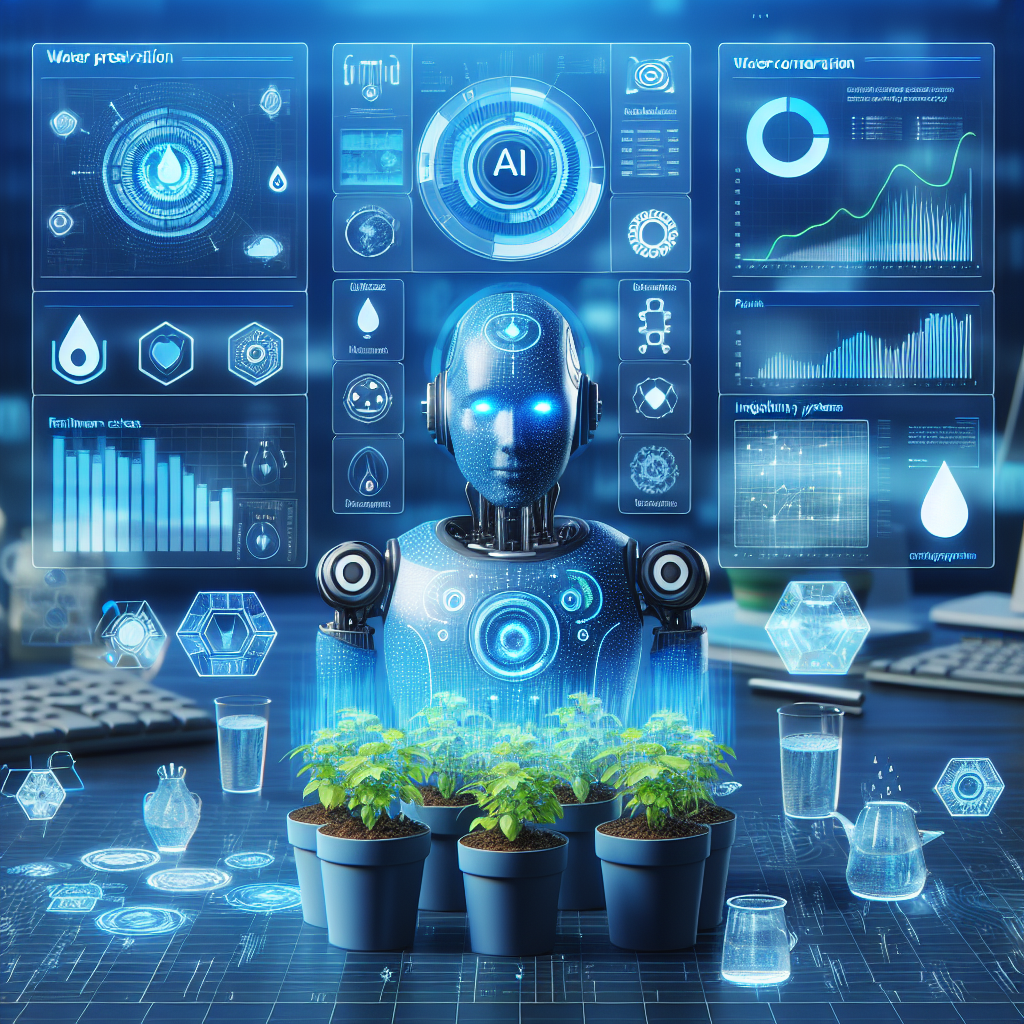As the world population continues to grow, the demand for water is increasing at an unprecedented rate. According to the United Nations, by 2025, an estimated 1.8 billion people will be living in regions with absolute water scarcity, and two-thirds of the world population could be under stress conditions.
Water conservation is crucial to ensure a sustainable supply of this vital resource for future generations. Artificial intelligence (AI) has emerged as a powerful tool in helping to address water conservation challenges. By leveraging AI-driven technologies, water management systems can optimize water usage, detect leaks, and improve overall efficiency.
AI-driven water conservation strategies are being implemented in various industries and sectors to reduce water wastage, increase efficiency, and lower costs. These innovative solutions are transforming the way we manage water resources and helping to create a more sustainable future. In this article, we will explore some of the key AI-driven water conservation strategies and their benefits.
1. Smart Irrigation Systems
One of the most significant water consumers in agriculture is irrigation. Traditional irrigation methods often result in water wastage due to overwatering or inefficient watering schedules. AI-driven smart irrigation systems use sensors, weather data, and AI algorithms to optimize water usage in agriculture.
These systems can monitor soil moisture levels, weather conditions, and plant water requirements to deliver the right amount of water at the right time. By adjusting irrigation schedules based on real-time data, smart irrigation systems can reduce water wastage, improve crop yields, and save costs for farmers.
2. Leak Detection
Water leaks are a significant cause of water wastage in residential, commercial, and industrial settings. AI-driven leak detection systems use machine learning algorithms to analyze water flow patterns and detect abnormalities that indicate a leak.
These systems can monitor water usage in real-time, identify leaks early, and alert users to take corrective actions. By detecting leaks promptly, AI-driven systems can prevent water wastage, reduce water bills, and prevent potential damage to properties.
3. Water Quality Monitoring
Ensuring water quality is essential for human health and environmental sustainability. AI-driven water quality monitoring systems use sensors, IoT devices, and AI algorithms to analyze water quality parameters such as pH, turbidity, and dissolved oxygen levels.
These systems can provide real-time data on water quality, detect contaminants, and alert authorities to potential water pollution issues. By monitoring water quality continuously, AI-driven systems can help prevent waterborne diseases, protect ecosystems, and ensure a safe water supply for communities.
4. Demand Forecasting
Predicting water demand is critical for efficient water management. AI-driven demand forecasting models use historical data, weather forecasts, population trends, and other variables to predict future water consumption patterns.
These models can help water utilities plan water allocation, optimize water distribution networks, and manage water resources more effectively. By accurately forecasting water demand, AI-driven systems can reduce water shortages, improve service reliability, and enhance customer satisfaction.
5. Water Conservation Apps
AI-driven water conservation apps are becoming popular tools for individuals and businesses to track and manage water usage. These apps use AI algorithms to analyze water consumption patterns, provide personalized recommendations for water conservation, and track water-saving goals.
Users can monitor their water usage in real-time, receive alerts for water leaks, and access water-saving tips to reduce their water footprint. By empowering users with actionable insights, AI-driven water conservation apps can encourage behavior change, promote water-saving habits, and contribute to a more sustainable water future.
FAQs:
Q: How does AI help in water conservation?
A: AI-driven technologies can optimize water usage, detect leaks, monitor water quality, forecast demand, and provide personalized recommendations for water conservation. By leveraging AI algorithms, water management systems can improve efficiency, reduce water wastage, and promote sustainable water practices.
Q: What are the benefits of AI-driven water conservation strategies?
A: AI-driven water conservation strategies can help reduce water wastage, lower costs, improve water quality, enhance service reliability, and promote sustainable water management practices. By leveraging AI technologies, water utilities, businesses, and individuals can optimize water usage, conserve water resources, and create a more sustainable water future.
Q: How can individuals contribute to water conservation using AI-driven technologies?
A: Individuals can use AI-driven water conservation apps to track and manage their water usage, receive personalized recommendations for water conservation, and set water-saving goals. By adopting water-saving habits, monitoring water consumption, and taking proactive measures to reduce water wastage, individuals can contribute to water conservation efforts and help create a more sustainable water future.
In conclusion, AI-driven water conservation strategies are transforming the way we manage water resources and helping to address the growing water scarcity challenges. By leveraging AI technologies, water utilities, businesses, and individuals can optimize water usage, detect leaks, monitor water quality, forecast demand, and promote sustainable water practices. With the increasing adoption of AI-driven water conservation solutions, we can create a more efficient, resilient, and sustainable water future for generations to come.

